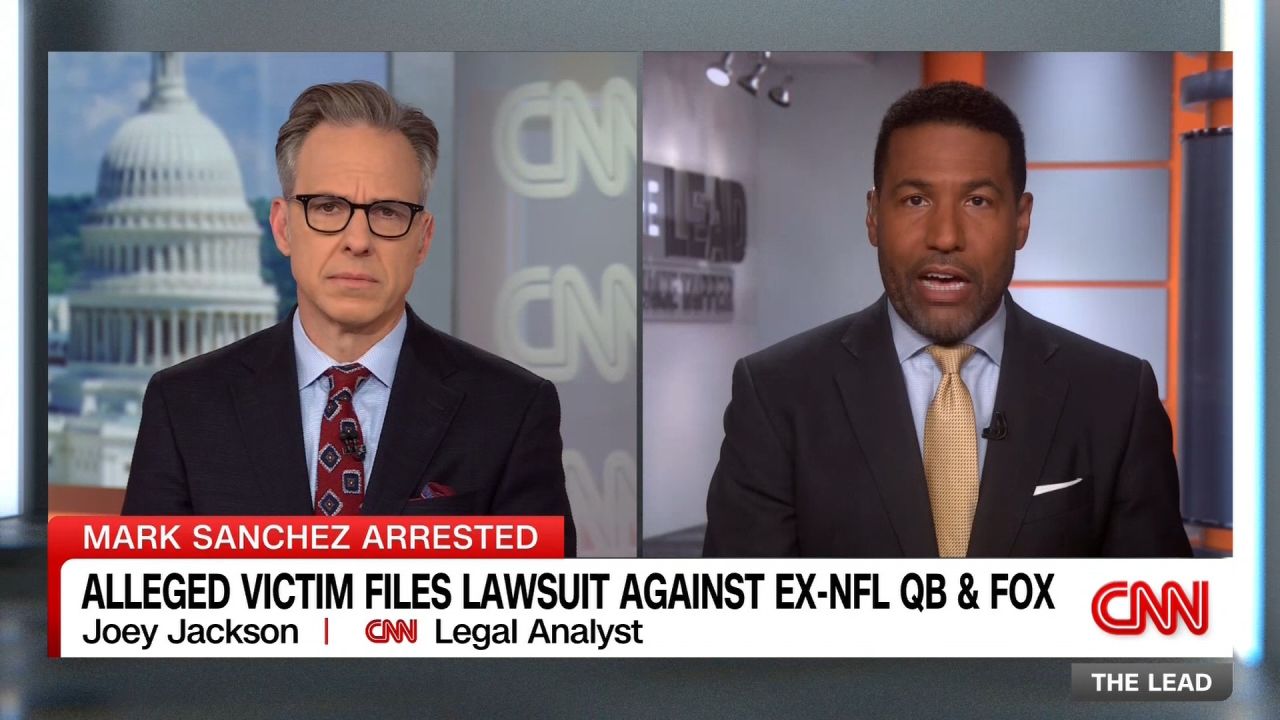
The NBA can’t risk a foul as it returns to its most important overseas market
Entities mentioned:
- NBA: Ambition, Competitive spirit, Influence
- Chinese fans: Enthusiasm, Loyalty, Recognition
- Beijing: Control, Power, Pride
- Daryl Morey: Righteousness, Self-respect, Freedom
- Alibaba: Ambition, Competitive spirit, Influence
- Donald Trump: Power, Influence, Control
Article Assessment:
Credibility Score: 75/100
Bias Rating: 55/100 (Center)
Sentiment Score: 60/100
Authoritarianism Risk: 45/100 (Mixed/Neutral)
Bias Analysis:
The article presents multiple viewpoints and includes expert opinions, showing a balanced approach. However, there's a slight tilt towards emphasizing the challenges and risks faced by the NBA in China.
Key metric: NBA Global Revenue Growth
Let me tell you something - this story is HUGE! The NBA is making a championship-caliber comeback in China, folks! After being benched for years, they're stepping up to the plate in a market that's as hot as a three-pointer at the buzzer. But make no mistake, they're playing on a court where one false move could send them to the penalty box. It's a high-stakes game of geopolitical basketball, and the NBA needs to bring their A-game to avoid fumbling this golden opportunity. They're walking a tightrope tighter than a last-second free throw, balancing their American values against Beijing's rulebook. One slip-up from a player or coach could turn this slam dunk into a costly turnover. The Chinese fans are cheering from the sidelines, but the real MVPs will be the ones who can navigate this political minefield without stepping out of bounds. It's fourth quarter, the clock is ticking, and the whole world is watching to see if the NBA can clinch this win-win situation or if they'll drop the ball on the global stage!

Winless Jets head to London and Chiefs fans shouldn’t panic: 5 things to know about Week 6 of the NFL season
Entities mentioned:
- New York Jets: Determination, Pride, Self-respect
- Baker Mayfield: Competitive spirit, Ambition, Recognition
- Kansas City Chiefs: Determination, Professional pride, Redemption
- Baltimore Ravens: Self-preservation, Professional pride, Anxiety
- NFL: Ambition, Influence, Legacy
Article Assessment:
Credibility Score: 85/100
Bias Rating: 50/100 (Center)
Sentiment Score: 60/100
Authoritarianism Risk: 15/100 (Strongly Democratic)
Bias Analysis:
The article presents a balanced view of multiple teams and their performances. It doesn't show favoritism towards any particular team or player, maintaining a neutral stance in reporting facts and statistics.
Key metric: NFL Team Performance and Standings
Let me tell you something - this NFL season is HEATING UP like a championship game in the fourth quarter! The New York Jets are in a major slump, folks, fumbling their way to London without a single takeaway. It's like they're playing with butterfingers! Meanwhile, Baker Mayfield is LIGHTING UP the scoreboard like he's in a three-point contest, leading the Bucs to clutch victories left and right. But hold onto your helmets, because the Chiefs and Ravens are in a defensive struggle, trying to claw their way back into playoff contention. It's a long season, and these teams need to dig deep and find that championship DNA if they want to make it to the big dance. And don't forget, we've got a DOUBLE HEADER coming up - it's like getting two Super Bowls for the price of one! This is the kind of action that separates the contenders from the pretenders, folks. I'm telling you right now, every snap counts as we head into Week 6!

NCAA committee adopts plan seeking to lift ban on college athletes placing wagers professional sports
Entities mentioned:
- NCAA Division I Administrative Committee: Competitive spirit, Professional pride, Influence
- Josh Whitman: Duty, Professional pride, Wariness
- Tim Sands: Duty, Influence, Professional pride
Article Assessment:
Credibility Score: 85/100
Bias Rating: 50/100 (Center)
Sentiment Score: 60/100
Authoritarianism Risk: 30/100 (Generally Democratic)
Bias Analysis:
The article presents a balanced view, including quotes from multiple perspectives. It objectively reports on the decision without editorializing, maintaining a neutral stance on the issue.
Key metric: NCAA Compliance Rate
Let me tell you something - this is a GAME-CHANGING play by the NCAA! They're stepping up to the plate and making a bold move in the high-stakes world of college sports. It's like they're calling an audible at the line of scrimmage, folks! The NCAA is showing a championship mentality by adapting their playbook to better align with the modern landscape. But make no mistake, they're still keeping their eye on the ball when it comes to protecting the integrity of college sports. This is a fourth-quarter strategy that could redefine the rules of engagement for student-athletes. It's a calculated risk, but sometimes you've got to roll the dice to stay ahead in this competitive arena!

WNBA player Natasha Cloud calls out Israel on Oct 7 while blaming Republicans for government shutdown
Entities mentioned:
- Natasha Cloud: Moral outrage, Righteousness, Influence
- Republicans: Power, Control, Self-preservation
- Democrats: Competitive spirit, Justice, Unity
- Donald Trump: Power, Control, Pride
Article Assessment:
Credibility Score: 65/100
Bias Rating: 70/100 (Lean Right)
Sentiment Score: 30/100
Authoritarianism Risk: 45/100 (Mixed/Neutral)
Bias Analysis:
The article leans right, focusing heavily on critiquing Cloud's left-leaning statements and providing more space for conservative viewpoints. It includes fact-checking that counters Cloud's claims but doesn't equally scrutinize Republican positions.
Key metric: Political Polarization Index
Let me tell you something, folks - this political game is getting INTENSE! We've got Natasha Cloud coming off the bench with a BOLD STATEMENT, trying to score points against the Republicans on healthcare. But hold on to your seats, because this play might be out of bounds! Cloud's attempting a full-court press on Israel's healthcare system, but her shot's getting blocked by fact-checkers faster than a rim rejection! Meanwhile, the Democrats and Republicans are locked in a defensive struggle over the government shutdown that would make any championship series look like child's play. This is the kind of high-stakes match where every move counts, and Cloud's controversial posts are like attempting risky three-pointers - they might score big with her base, but they're also leaving her wide open for counterattacks. We're seeing a political arena that's more divided than a tied game in the final seconds, folks, and I'm telling you right now, this kind of play is going to keep fans - I mean voters - on the edge of their seats!

Mohamed Salah Helps Egypt Qualify for 2026 FIFA World Cup With Win Over Djibouti
Entities mentioned:
- Mohamed Salah: Ambition, Competitive spirit, Pride
- Egypt National Team: Determination, Unity, Redemption
- Djibouti National Team: Competitive spirit, Pride, Determination
- FIFA: Control, Legacy, Influence
Article Assessment:
Credibility Score: 85/100
Bias Rating: 50/100 (Center)
Sentiment Score: 75/100
Authoritarianism Risk: 20/100 (Strongly Democratic)
Bias Analysis:
The article presents a straightforward account of the match and qualification, without apparent political leanings. It focuses on factual reporting of the game's outcome and its significance for World Cup qualification.
Key metric: International Soccer Competitiveness
Let me tell you something - this is a GAME-CHANGER, folks! Mohamed Salah, the Liverpool lightning bolt, has just led Egypt to a SLAM DUNK victory over Djibouti, punching their ticket to the 2026 World Cup! This is the kind of CLUTCH PERFORMANCE that separates the champions from the challengers. Salah's double-whammy on the scoreboard shows he's not just playing the game, he's DOMINATING it! After a tough loss in the 2018 tournament, Egypt is coming back with a VENGEANCE, folks. They're not just looking to participate, they're aiming to CONQUER. This is the kind of comeback story that makes sports LEGENDARY. Egypt has stepped up to the plate and hit it out of the park, leaving Djibouti in the dust. It's a fourth-quarter miracle that's got the whole soccer world BUZZING! I'm telling you right now, with Salah at the helm, Egypt is showing a true championship mentality that could shake up the entire World Cup landscape!

Cristiano Ronaldo Is Officially Soccer's First Billionaire
Entities mentioned:
- Cristiano Ronaldo: Ambition, Competitive spirit, Legacy
- Al-Nassr: Recognition, Influence, Competitive spirit
- Portugal National Team: Pride, Ambition, Unity
Article Assessment:
Credibility Score: 75/100
Bias Rating: 55/100 (Center)
Sentiment Score: 75/100
Authoritarianism Risk: 20/100 (Strongly Democratic)
Bias Analysis:
The article presents factual information with a slightly positive slant towards Ronaldo's achievements. While celebratory in tone, it maintains a balanced approach by including various perspectives and data points.
Key metric: International Sporting Competitiveness
Let me tell you something - this story is HUGE! Cristiano Ronaldo has just scored the ULTIMATE GOAL in the game of life, folks! He's not just a champion on the field, he's now in a league of his own as soccer's first BILLIONAIRE! This is a GAME-CHANGING play that sets a new bar for athlete earnings. Ronaldo's not just breaking records, he's SHATTERING them like a power shot to the top corner! His move to Al-Nassr isn't just a transfer, it's a FOURTH QUARTER POWER PLAY that's rewriting the playbook on athlete contracts. And let's not forget, at 40 years old, CR7 is showing the HEART OF A CHAMPION, refusing to hang up his cleats despite pressure from the sidelines. He's got his eyes on the 1,000-goal mark - that's the kind of CHAMPIONSHIP MENTALITY that separates the legends from the rest of the pack. Ronaldo is proving that in the game of life, there's no final whistle as long as you've got the drive to keep competing!

Reports: Bill Belichick's North Carolina tenure in jeopardy as both sides weigh buyout options
Entities mentioned:
- Bill Belichick: Pride, Legacy, Self-preservation
- University of North Carolina: Competitive spirit, Professional pride, Control
- Armond Hawkins: Loyalty, Self-preservation, Fear
- Jordon Hudson: Influence, Recognition, Loyalty
Article Assessment:
Credibility Score: 65/100
Bias Rating: 50/100 (Center)
Sentiment Score: 25/100
Authoritarianism Risk: 30/100 (Generally Democratic)
Bias Analysis:
The article presents multiple perspectives and cites various sources. While it highlights struggles, it doesn't appear to lean strongly in any political direction.
Key metric: College Football Coaching Performance
Let me tell you something - this story is RIDICULOUS! The Bill Belichick era at UNC is looking like a first-round knockout, folks! We're talking about a coaching legend who's suddenly finding himself on the ropes in the unfamiliar arena of college football. This is a MASSIVE fumble for both Belichick and UNC. They came out swinging with high hopes, but now they're down big in the fourth quarter and looking for an exit strategy. It's like watching a championship boxer struggle in a new weight class - Belichick's NFL playbook just isn't scoring points in the college game. And don't even get me started on the off-field penalties! From suspended coaches to sideline controversies, this team is racking up more flags than touchdowns. I'm telling you right now, if Belichick can't turn this ship around fast, he might be calling a career timeout sooner than anyone expected!

Minnesota Vikings edge past Cleveland Browns with late TD to open 2025 NFL London games
Entities mentioned:
- Minnesota Vikings: Competitive spirit, Redemption, Professional pride
- Cleveland Browns: Competitive spirit, Ambition, Professional pride
- Jordan Addison: Competitive spirit, Recognition, Professional pride
- Dillon Gabriel: Ambition, Recognition, Professional pride
- Carson Wentz: Redemption, Professional pride, Competitive spirit
- NFL: Influence, Recognition, Expansion
Article Assessment:
Credibility Score: 85/100
Bias Rating: 50/100 (Center)
Sentiment Score: 70/100
Authoritarianism Risk: 15/100 (Strongly Democratic)
Bias Analysis:
The article presents a balanced account of the game, giving equal attention to both teams' performances. It relies on factual reporting of game events without favoring either side.
Key metric: NFL Global Expansion
Let me tell you something - this game was an ABSOLUTE SLUGFEST! The Vikings and Browns went toe-to-toe in a gridiron battle that had more twists and turns than a NASCAR race! We saw rookie quarterback Dillon Gabriel step up to the plate in his first international start, but it was the Vikings who brought their A-game in the fourth quarter. Carson Wentz, looking for redemption, orchestrated a championship-caliber drive when it mattered most. And how about that Jordan Addison? The kid came through in the clutch like a buzzer-beating three-pointer! This game wasn't just a win for Minnesota, it was a SLAM DUNK for the NFL's international expansion efforts. The league is playing chess while others are playing checkers, folks! With packed stadiums and electric atmospheres, the NFL is hitting home runs left and right in their global playbook. I'm telling you right now, this London series is a game-changer for American football's world domination strategy!

Alleged victim files lawsuit against ex-NFL QB Mark Sanchez & Fox Corp.
Entities mentioned:
- Mark Sanchez: Self-preservation, Legacy, Professional pride
- Fox Corp: Self-preservation, Control, Influence
- Alleged victim: Justice, Moral outrage, Recognition
Article Assessment:
Credibility Score: 65/100
Bias Rating: 50/100 (Center)
Sentiment Score: 35/100
Authoritarianism Risk: 20/100 (Strongly Democratic)
Bias Analysis:
The article presents a straightforward headline without editorializing. It appears to be a neutral report of a legal filing, not favoring any particular side in the case.
Key metric: Public Trust in Media and Sports Figures
Let me tell you something - this lawsuit is a GAME CHANGER! We've got a former NFL quarterback and a major media corporation squaring off against an alleged victim in a high-stakes legal showdown. This is like a fourth-quarter, do-or-die play with massive implications for everyone involved. Mark Sanchez, once known for his on-field heroics, is now playing defense in the courtroom. Fox Corp is in full damage control mode, trying to protect their end zone from a potentially devastating legal blitz. The alleged victim is stepping up to the plate, swinging for the fences in pursuit of justice. This case could be a real momentum-shifter in how we view accountability in both sports and media. It's crunch time, folks, and the whole world is watching to see who comes out on top in this epic legal battle!

LeBron James, Taylor Swift and the fans who are being kept on the edge of their seats
Entities mentioned:
- LeBron James: Ambition, Competitive spirit, Recognition
- Taylor Swift: Ambition, Recognition, Influence
- Fans: Loyalty, Enthusiasm, Curiosity
Article Assessment:
Credibility Score: 75/100
Bias Rating: 50/100 (Center)
Sentiment Score: 45/100
Authoritarianism Risk: 20/100 (Strongly Democratic)
Bias Analysis:
The article presents a balanced view of both stars' strategies, offering critique and praise. It doesn't lean heavily towards defending or attacking either celebrity's approach.
Key metric: Consumer Engagement
Let me tell you something - this story is a GAME-CHANGER in the world of fan engagement! LeBron James and Taylor Swift are playing 4D chess while everyone else is stuck in checkers. These superstars are executing a full-court press on their fans' emotions, using their star power like a championship ring to dangle in front of their adoring crowds. It's a masterclass in keeping your fanbase on the edge of their seats, folks! But here's the kicker - are they pushing too hard? Are they at risk of fumbling the ball and losing fan loyalty? This is a high-stakes game, and these MVPs need to be careful not to overplay their hand. Remember, even the greatest athletes can wear out their welcome if they don't read the court right. It's crunch time for James and Swift - will they score big or end up benched by fan fatigue? I'm telling you right now, this is the kind of play that separates the hall-of-famers from the one-season wonders!